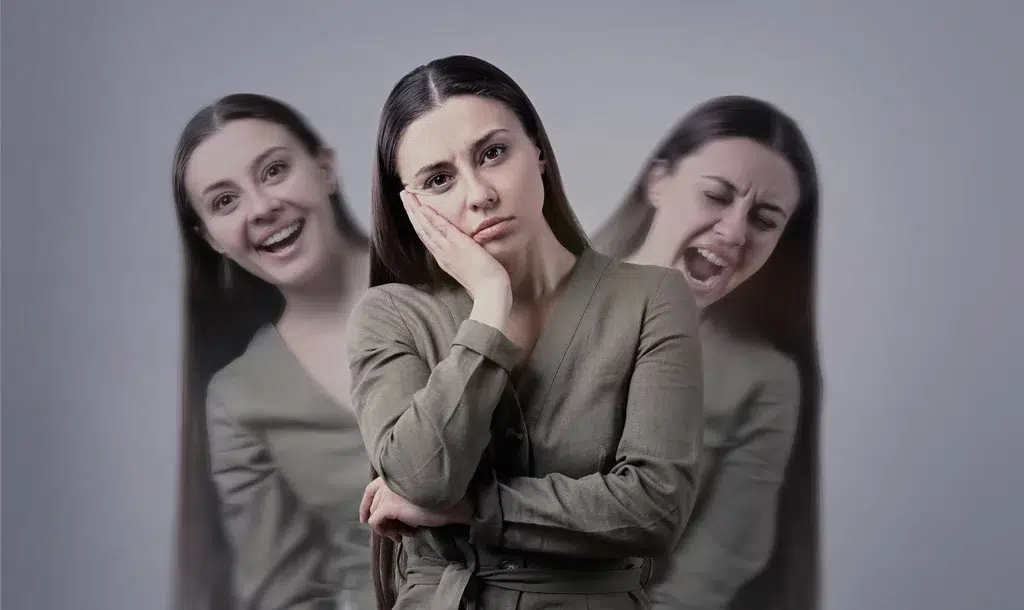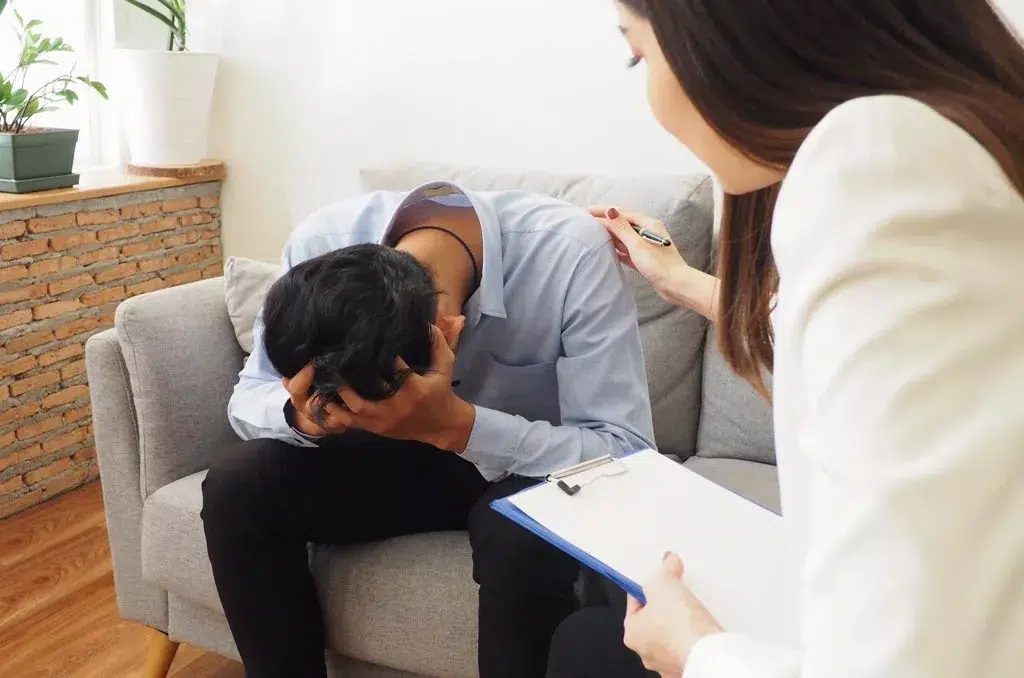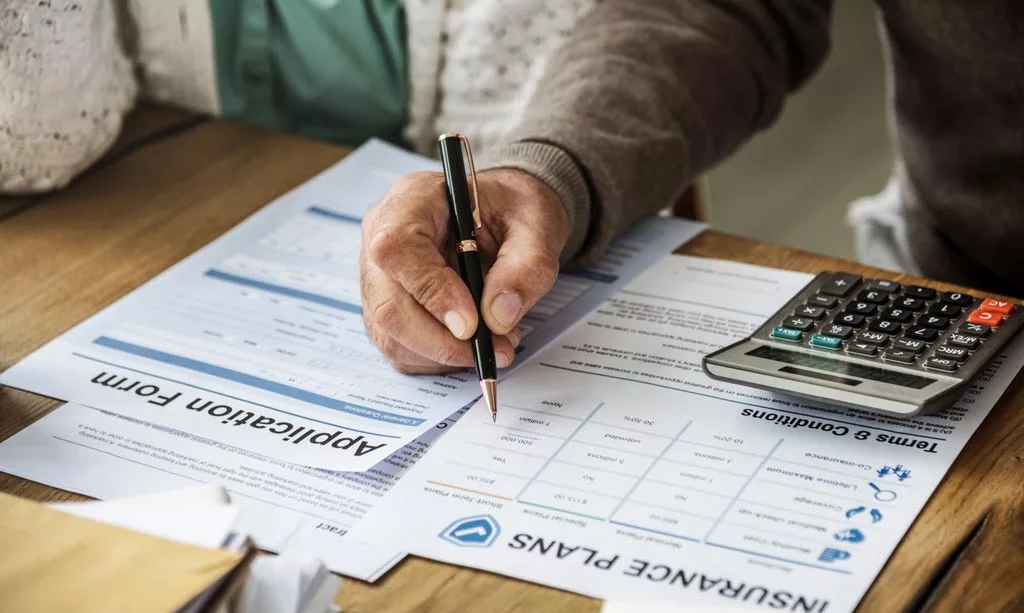What is bipolar disorder?
Table of Contents
Bipolar disorder is a brain disorder that causes extreme shifts in mood, energy, and ability to function. The severity of the symptoms varies from person to person. Some people have milder symptoms, but others experience a manic episode or full-blown mania that can last weeks or even months.
People with bipolar disorder can have periods of normal moods and severe mood swings. When a person has a manic episode, they may feel very happy, energetic, talkative, and confident for several days. During this time, the person may lose touch with reality as they spend more money than usual and neglect their work or school responsibilities.
What are the Types of bipolar disorders?
The symptoms of bipolar disorder generally fall into two categories: manic episodes and depressive episodes. However, there are several different types of bipolar disorder.
The most common type of bipolar disorder is bipolar I disorder, defined by a manic episode that occurs alongside depression or has a depressed mood as its only symptom. The manic episodes can last from several days to several weeks; they are characterized by extreme changes in mood, energy, behavior, and activity levels. The manic stage of bipolar I disorder is also referred to as a manic episode.
Bipolar II disorder is similar to bipolar I disorder but features hypomanic episodes instead of mania. These periods of abnormally elevated energy and mood can last for days up to months at a time and are not accompanied by a depressed mood. Manic episodes are almost always present in people with bipolar II. The hypomanic periods function to raise the person’s overall baseline level of functioning. Bipolar II disorder is also called a double-depressive disorder because it involves depressive episodes (in addition to hypomanic ones).
The third type of bipolar disorder is known as bipolar III disorder or cyclothymia. This type involves any period of hypomania and any period of milder depression that lasts for at least two years. Bipolar III disorder differs from bipolar I and II disorders because it does not involve significant shifts in mood or behavior.
Free Mental Health Assessment
What is a bipolar rehab center?
Bipolar disorder affects between 2% and 3% of American adults yearly. About 5 million people in the United States struggle with this disease at some point. It can begin at any age but usually starts in young adulthood (late teens or early twenties). For some people, it starts earlier in childhood; for others, it begins later in life.
It is essential to know also that bipolar disorder is treatable. Most people who are diagnosed early respond well to treatment. Medications and other therapies can help manage symptoms and improve quality of life. To this end, this is where treatment facilities can be indispensably valuable.
A bipolar rehab facility is a place that offers treatment for a person diagnosed with bipolar disorder. The facility provides both treatment and therapy to help the individual deal with their diagnosis. Depending on the type of facility, some may offer family counseling or skills training. There are many different types of rehab facilities available that offer treatment for bipolar disorder.
Treatment for Bipolar at a Holistic Rehab
Treatment centers, for example, are geared toward providing a full spectrum of services for those who suffer from the illness and helping their families cope with the effects of bipolar disorder. Residential programs are more regulated than other facilities and are designed to offer a safe place for individuals to live while working on improving their conditions. Individual therapy services can be found in either facility and may be used as part of an overall treatment strategy.
Regardless of the type of bipolar rehab facility an individual chooses, it should provide various services that can help both the person with bipolar disorder and those close to them to make the most out of any situation. It is also helpful to know that very rarely will you find a facility specifically geared to only dealing with bipolar disorder. It is more likely that you’re looking at a mental health and rehabilitation facility, where they treat and heal many illnesses and conditions.
Who benefits from a bipolar treatment facility?
The answer to the question of who benefits from a bipolar treatment facility is “persons who have bipolar disorder and their families.” Bipolar disorder is a neurobiological illness that causes severe shifts in mood, energy, and behavior. Like other mental illnesses, it’s often misunderstood by the public and those who haven’t experienced it firsthand. Those who have bipolar might take years to come to terms with their condition and get help due to many factors, including denial (they may not even realize they have a problem), fear of stigma, and seeking help for something that has been traditionally seen as being only a part of one’s personal life.
It is also critical to understand the toll bipolar disorder can have on those close to the person struggling with the condition. Families can struggle to cope with and process their loved one’s behavior without a deep understanding of exactly what is happening and why it’s happening and empowerment with the tools to deal with it.
Treatment centers help patients learn how to manage their conditions more effectively, giving them the tools, they need to avoid relapses and live fulfilling lives. A treatment center will also provide resources for ongoing support after their stay is over, helping them prevent relapses and continue improving their quality of life.
24 Hour Mental Health Hotline
What is a day like in a bipolar disorder treatment center?
The day at a bipolar disorder treatment center is different for everyone. But, the one constant is that each patient enters the day informed and prepared by their therapist. Each patient knows what they need to work on, the day’s goals, and how much support they can expect from staff.
The facility’s aim is for each client to take responsibility for their recovery. With this in mind, patients participate in groups every day that focus on self-management skills. Clients also do various tasks around the Center and participate in leisure activities such as reading or watching movies. The schedule also includes individual and group therapy sessions with staff therapists and visits from psychiatrists and nurses. These professionals help patients assess their progress and determine the next steps in their treatment plan.
Dual diagnosis and effective bipolar disorder treatment.
A person with two mental illnesses, a dual diagnosis, will need to be treated for both illnesses simultaneously. This can be very tricky, and it is essential to have a good psychiatrist. Because of the unique challenges faced by someone with bipolar disorder and another mental illness such as depression or anxiety, balanced treatment is crucial. Finding effective bipolar disorder treatment is essential when dealing with a dual diagnosis. One of the biggest challenges for those living with a dual diagnosis of bipolar and another mental illness is that they are often treated as if they do not have bipolar disorder or other disorders.
The term dual diagnosis is often used to describe patients with both mental health and drug abuse problems. However, the term is inaccurate, as it suggests that these problems are separate and unrelated, which is not the case. Studies have shown that most people who suffer from these problems experience them concurrently. There are certainly cases of comorbidity, where one condition develops after the other, but in most cases of dual diagnosis, both conditions arise together, typically during adolescence or young adulthood.
Bipolar disorder is a complex mental illness characterized by mood swings that range from mania (excessive excitement) to depression. It also commonly co-occurs with substance abuse disorders. The reasons for this are many – the two conditions share some common genetic risk factors; drugs and alcohol can be an effective way of treating some of the symptoms of bipolar disorder (e.g., anxiety); they can serve as a form of self-medication; they can mask some of the depressive symptoms, and they have also been shown to accelerate the onset of manic episodes in some at-risk populations.
Helping a loved one find a suitable bipolar rehab facility.
With bipolar disorder, the person suffering from it needs to be in a secure, structured environment where they can focus on their treatment without worrying about what their life is like back home. The best place for this is a bipolar rehab facility.
As a loved one who’s going to be helping them get into the right facility, you know that there are several things you need to look for to ensure that your friend or family member will be taken care of properly. When entering a bipolar rehab facility, there are a few key points to look out for:
- The first thing to check is whether the staff are adequately qualified and certified and possess adequate experience dealing with people who suffer from mental illnesses. If not, then you should be wary of how well they’ll be able to treat your loved one and teach them the skills they need to live a healthy and productive life with bipolar disorder. You want someone who knows how to relate to your loved one and how to get them better.
- The next thing you want to look at is what programs they provide and how often they offer group therapy sessions so that your friend or family member can be helped by other people suffering from the same illness. People with bipolar disorder often feel isolated and alone, so a sense of community is critical.
- It is also helpful to do your research on the facility. Most high-quality facilities will have a reputation that precedes them. Looking up the past experiences and results of clients who have gone through the treatment can be helpful.
How much does a mental health rehab program cost?
It is important to note that several types of addiction and substance abuse rehabilitation programs are available. The type of program you choose will help determine your treatment options and the cost. For example, if you are looking for a faith-based program, it will be less expensive than a luxury treatment facility.
A rehab that offers individualized programs is more costly than one with a focus on group counseling treatment. You can expect to pay no less than $30,000 monthly or more for quality, full-suite recovery treatment at the most reputable facilities. However, it is nigh impossible to nail down a standardized cost of mental health treatment as it is generally a bespoke service with prices that vary from person to person depending on their needs.
Does insurance cover rehab for bipolar disorder?
According to the NIH, some health insurance plans do not cover the cost of treatment for bipolar disorder. However, others may cover some of the costs of the medications and needed treatments. The Affordable Care Act has required that mental health issues be covered under insurance, so there is a degree of coverage with many policies and carriers.
However, this can vary greatly depending on policy, individual, and treatment sought. There are far too many variables for anyone to guarantee how the insurance coverage will work. Generally, the best course of action is directly calling Emerald Isle or the facility for which you are seeking treatment. They can better advise about precisely what you’re covered for, what you can achieve, and how you can receive the assistance with the least expense.
Immediate Placement for Mental Health Treatment
Find help at holistic rehab that offers top bipolar treatment!
Despite being a growing problem, few people seem to understand what bipolar disorder is. A chronic mental illness, bipolar disease can cause dramatic shifts in mood, energy, and activity levels that impair your ability to function every day. It’s a complex condition that requires professional diagnosis and treatment to be managed effectively.
Holistic rehab is the best place to get treatment for bipolar disorder that focuses on overall wellness. These facilities are equipped not only with psychiatrists and psychologists to address the mental aspects of the illness but also with dietitians, yoga instructors, fitness trainers, and many other experts who can help you take care of your body and mind.
Bipolar disorder treatments include medications like mood stabilizers or antipsychotics, talk therapy sessions; lifestyle changes like learning how to manage stress; and holistic therapies including massage therapy or acupuncture. When you’re at a holistic rehab with top bipolar treatment options, you’ll have access to these effective therapies in one convenient location.
If you’re ready for a genuinely effective bipolar treatment program to help you manage this condition, contact Emerald Isle Health and Recovery today!




